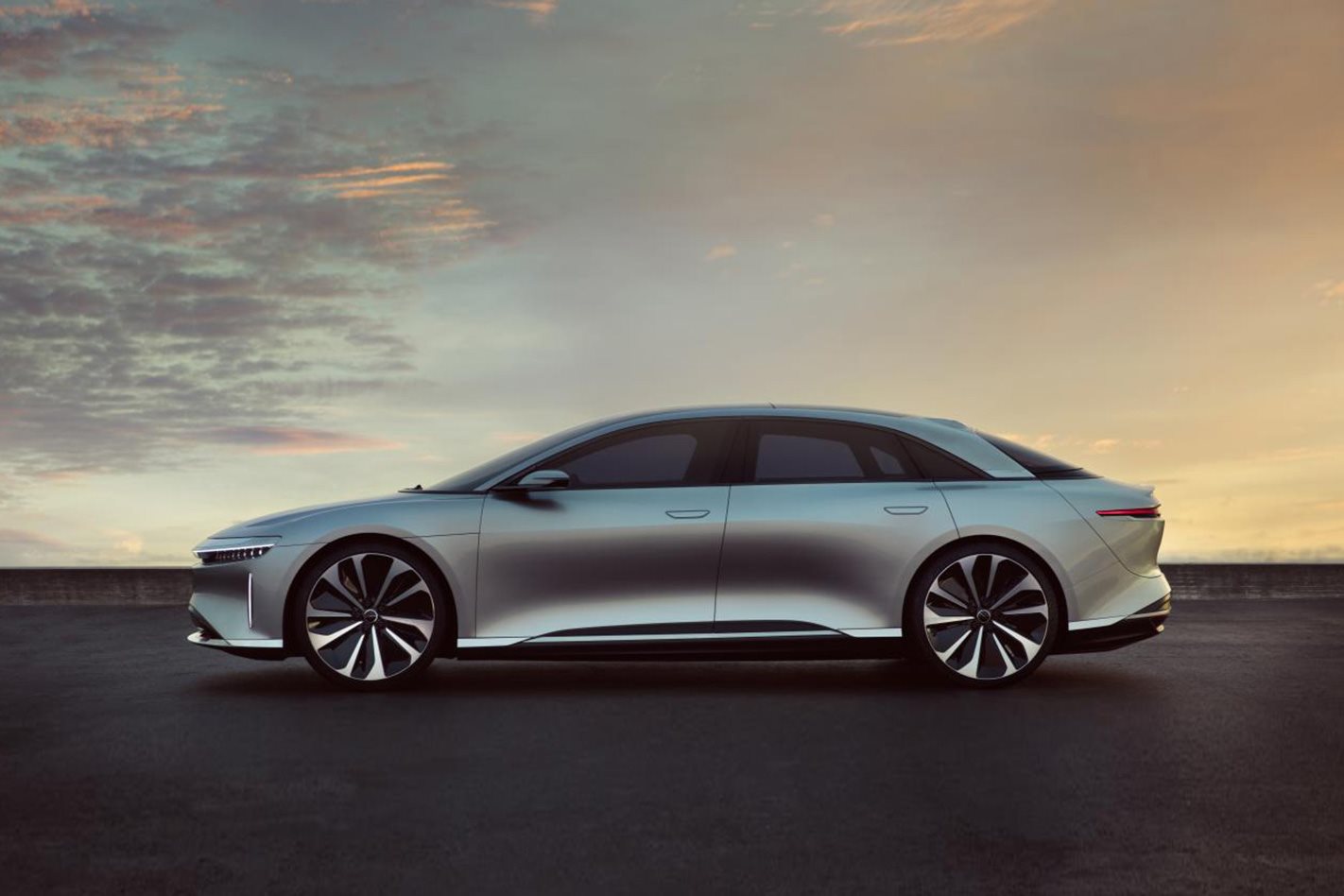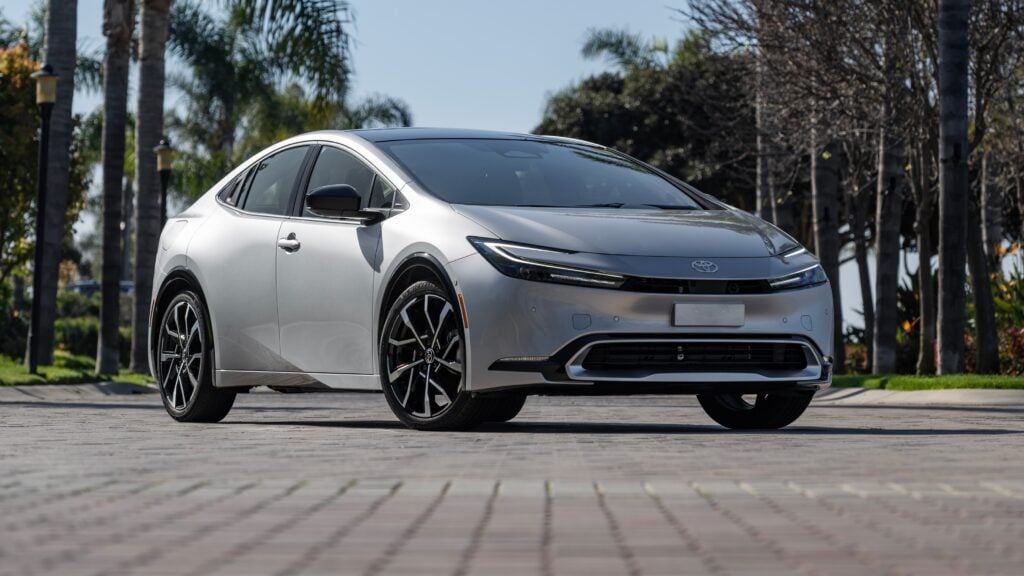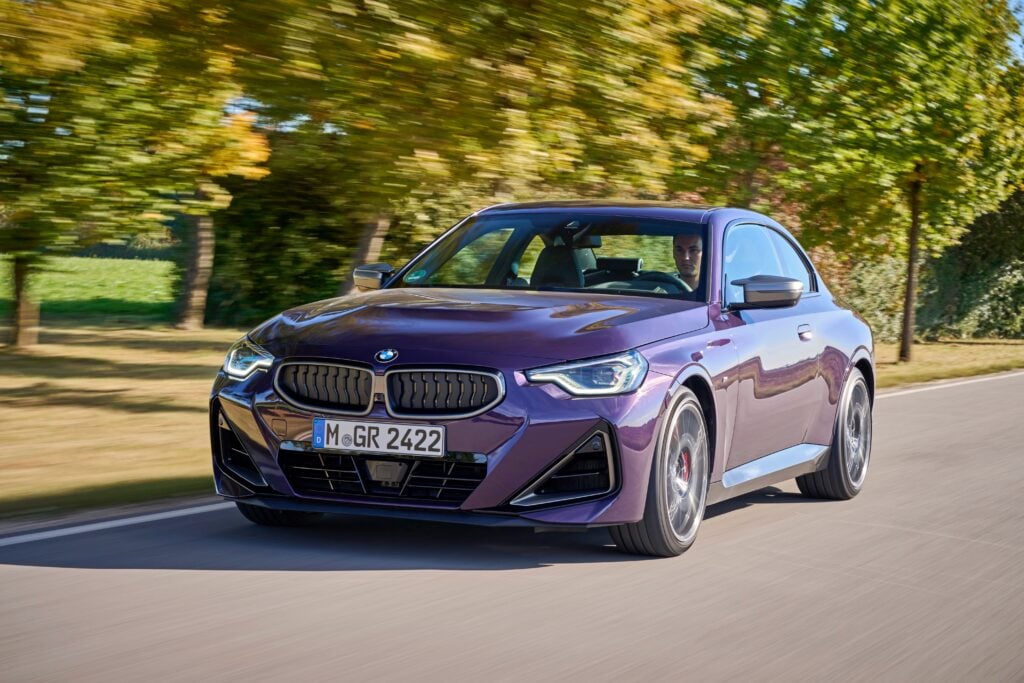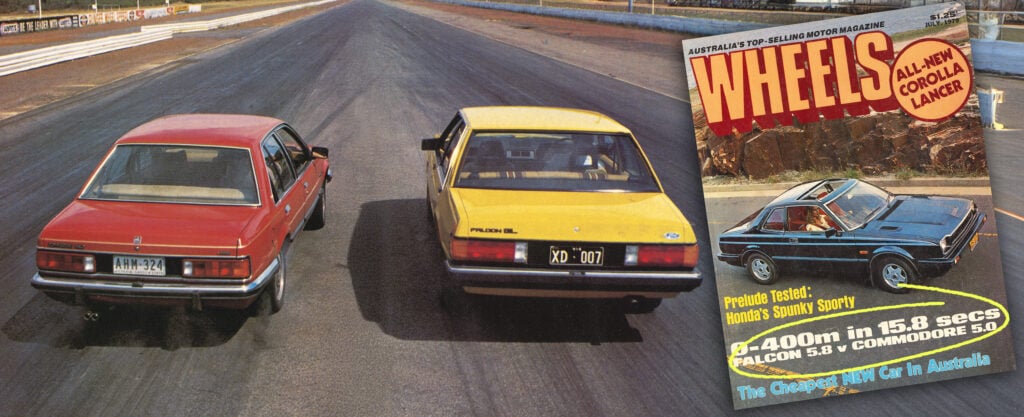LUCID Motors is a company that has the potential to rival Tesla’s global hype machine and beat it at its own disruption game, but it is very early days and the all-electric vehicle start-up manufacturer’s future remains unclear.
We’ll forgive you if you haven’t heard of the company, or its first vehicle, the Air.
Not all electric start-ups are made equal and some light reading on the beleaguered Faraday Future is evidence alone, but the Lucid Air warrants serious consideration, and not least because of its 378km/h capabilities (more on that later).
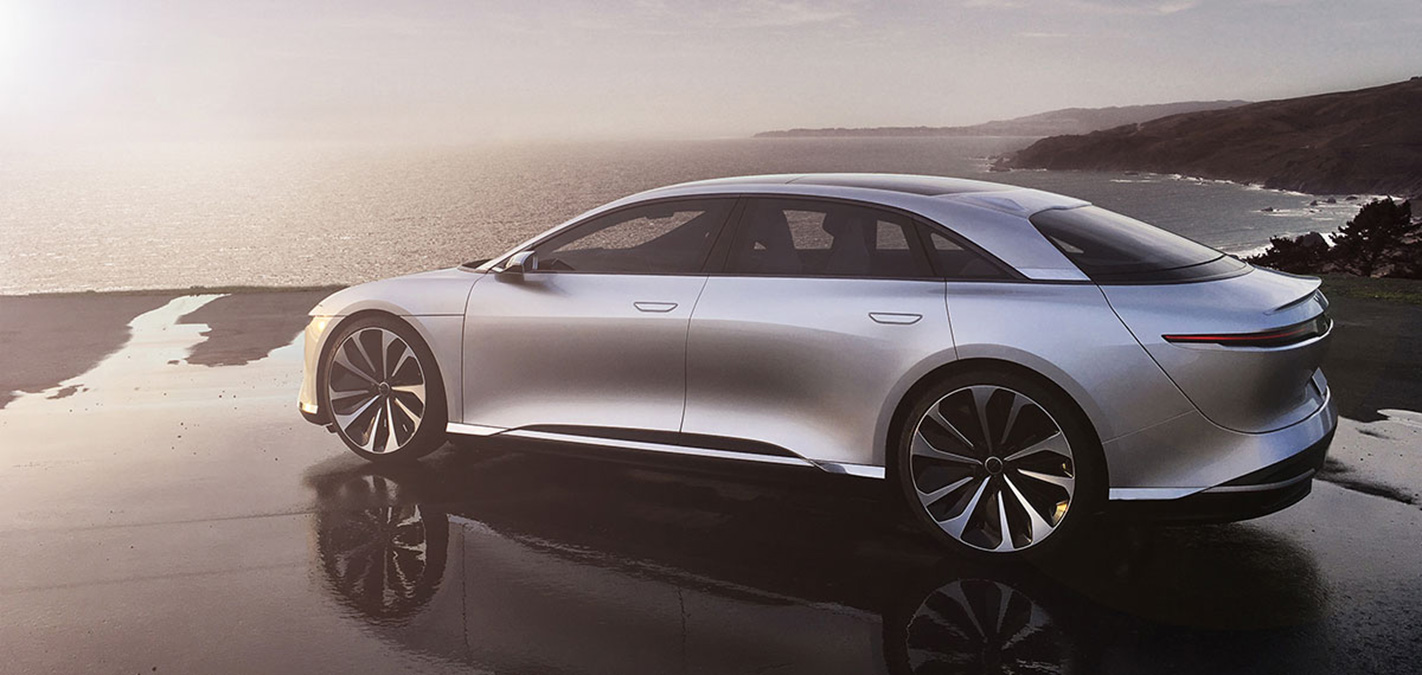
Its exterior dimensions of the Air are comparable to a Mercedes-Benz E-Class, with interior space more akin to an S-Class.
The concept vehicle, which the company intends to produce and sell for circa US$60,000 (A$75,350), was designed by Derek Jenkins, the man behind the latest Mazda MX-5 and Audi’s A2.
Lucid has already built a selection of vehicles, but they are only alpha prototypes and a production version of any model is some way off, and that is where Ford, a titan of the established car industry, comes into play.
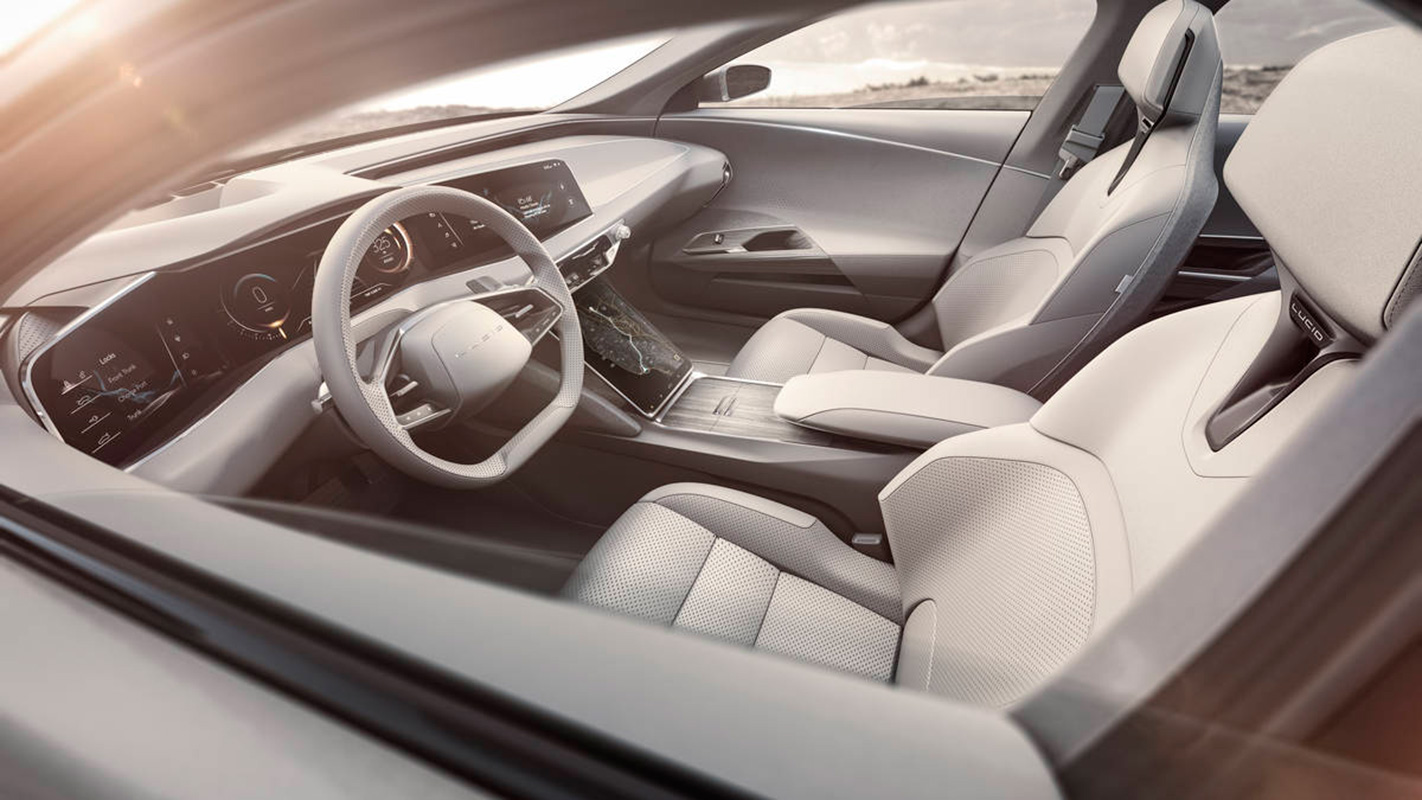
The purchasing of Lucid would give Ford an EV which has already been designed from the ground-up, and could be fast-tracked in to showrooms with its established production and manufacturing capabilities.
Currently, Ford’s electric line-up and plans mostly centre around modifying existing platforms and products, and Lucid’s not inconsiderable patent portfolio is also no doubt an attractive part of any potential deal.
According to Recode, two additional anonymous parties are in discussions with the company about a possible buy-out, but aside from the sleek design and an almost production-ready model, what’s the big attraction with Lucid? In short, battery technology.
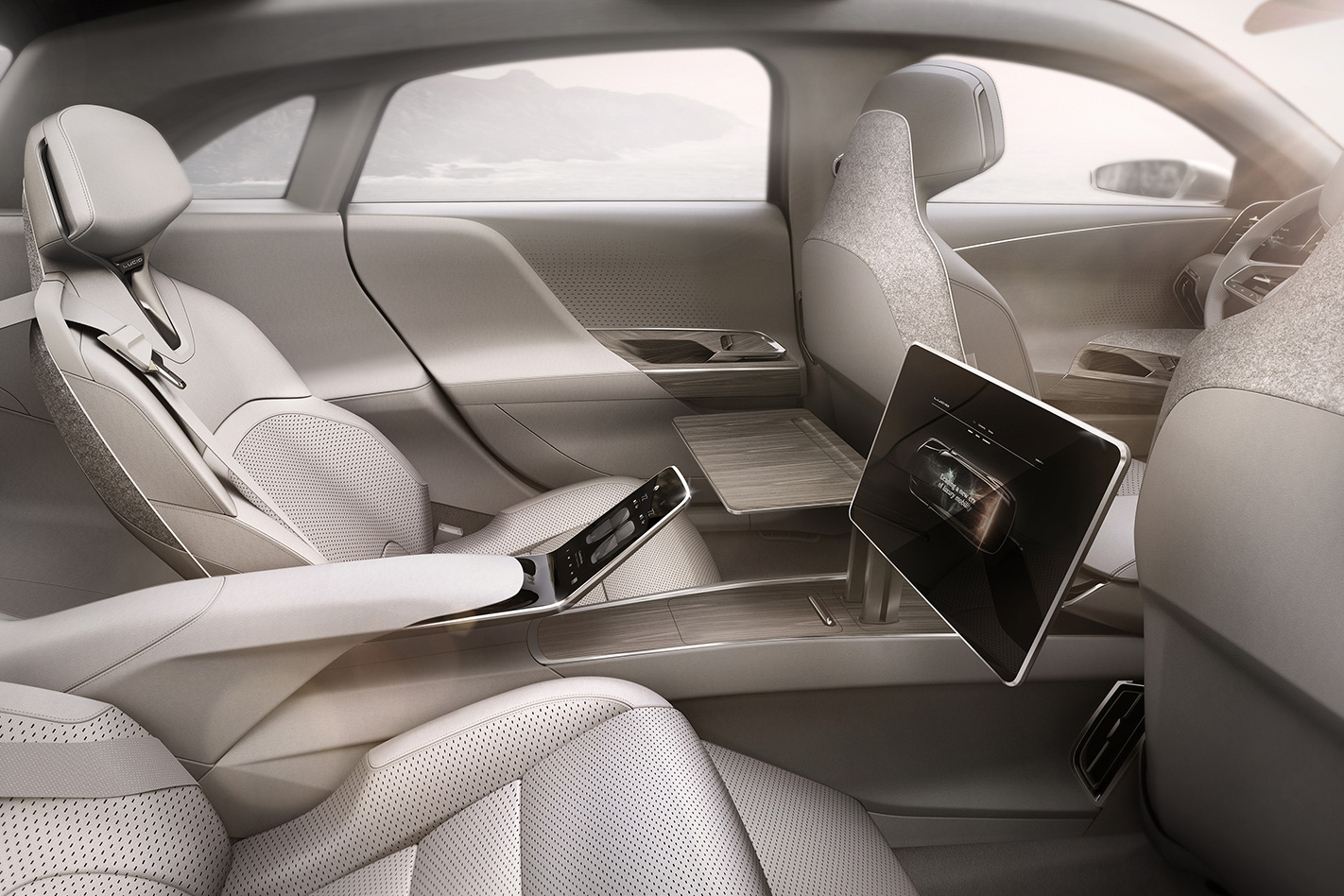
No doubt you’d want some proof of that statement. Well, a 736kW twin-motor-equipped Air was stripped out, and pushed to the limit to record a staggering 378km/h maximum speed.
That kind of speed makes it not only potentially the quickest EV in the world, but also one of the fastest passenger cars. Period.
Like any technology firm worth its salt, of course Lucid is developing autonomous driving tech as part of its package.
The design of the Lucid is different to the traditional ‘skateboard’ layout of most electric vehicles and, instead of placing the entire battery packs evenly between the axles, Lucid has stacked the batteries in a narrower pile along the centre line of the chassis.
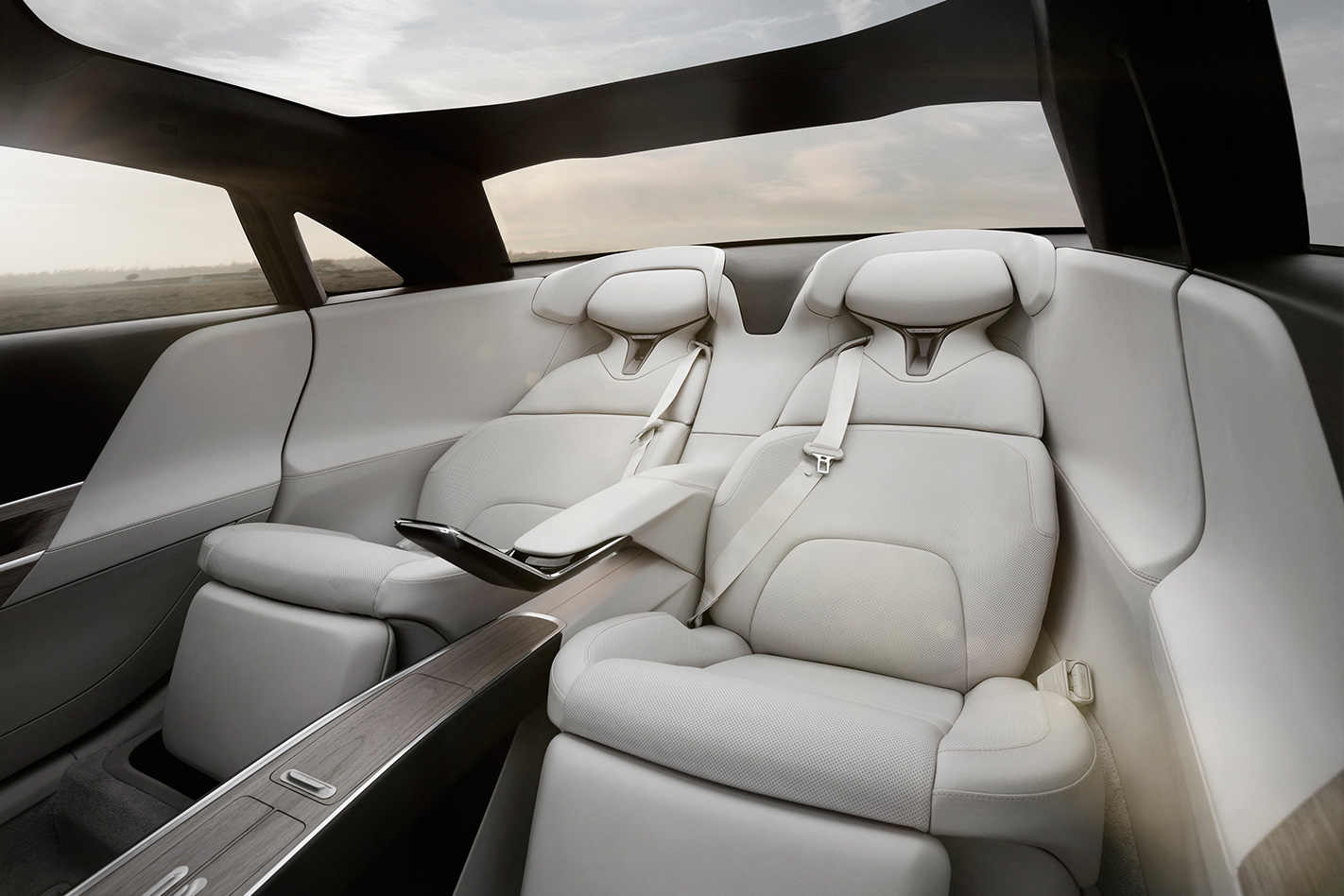
The design is akin to that seen in the all-new Porsche Panamera, with the centre console running through the car to rear passengers.
While its future remains uncertain, if Lucid can secure an investor (or buyer) it’ll have the clarity it needs to be a real player in the electric vehicle game. And that should have Tesla worried.


